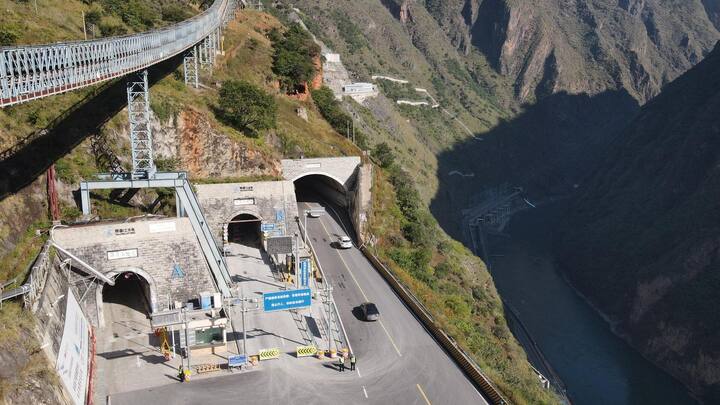China's Jinping Underground Laboratory, the world's largest and deepest underground lab, has started operations after three years of extensive upgrades and expansion.
Its joint construction started in December 2020, by Tsinghua University and state-owned Yalong River Hydropower Development Company.
Located 2.4km underground in southwest China, this facility is expected to play a significant role in the global search for dark matter due to its unique testing conditions.
Ideal site for dark matter detection
At such depths, the laboratory is shielded from most cosmic rays.
This creates an ultra-clean environment for detecting dark matter, an invisible substance that is believed to make up at least a quarter of the universe.
According to Yue Qian, a Professor at Tsinghua University's Department of Engineering Physics, the lab experiences a tiny flux of cosmic rays, equal to one hundred-millionth of that on Earth's surface.
The extremely low environmental radiation and radon concentration improve dark matter detection capabilities.
Expansion and research capabilities
Now nearly double the size of Italy's Gran Sasso National Laboratory, the Jinping lab has a room capacity of 300,000 cubic meters, equivalent to about 120 Olympic-sized swimming pools.
The facility will support interdisciplinary research in fields such as particle physics, cosmology, nuclear astrophysics, life sciences, and rock mechanics.
Ten research teams from various universities and institutes have already set up shop at the laboratory.
Potential medical breakthroughs
Researchers from Sichuan Medical University's West China Medical Centre have been studying deep-earth medicine at the Jinping lab.
They have identified molecular targets that are adapted to extremely low background radiation. According to state-backed China News Service, this discovery could potentially improve tumor treatment.
The lab's unique conditions are likely to open up new frontiers in deep-earth experiments and contribute significantly to scientific inquiries.
- Adenman and Mutton
-

 2
2



Recommended Comments
Join the conversation
You can post now and register later. If you have an account, sign in now to post with your account.
Note: Your post will require moderator approval before it will be visible.